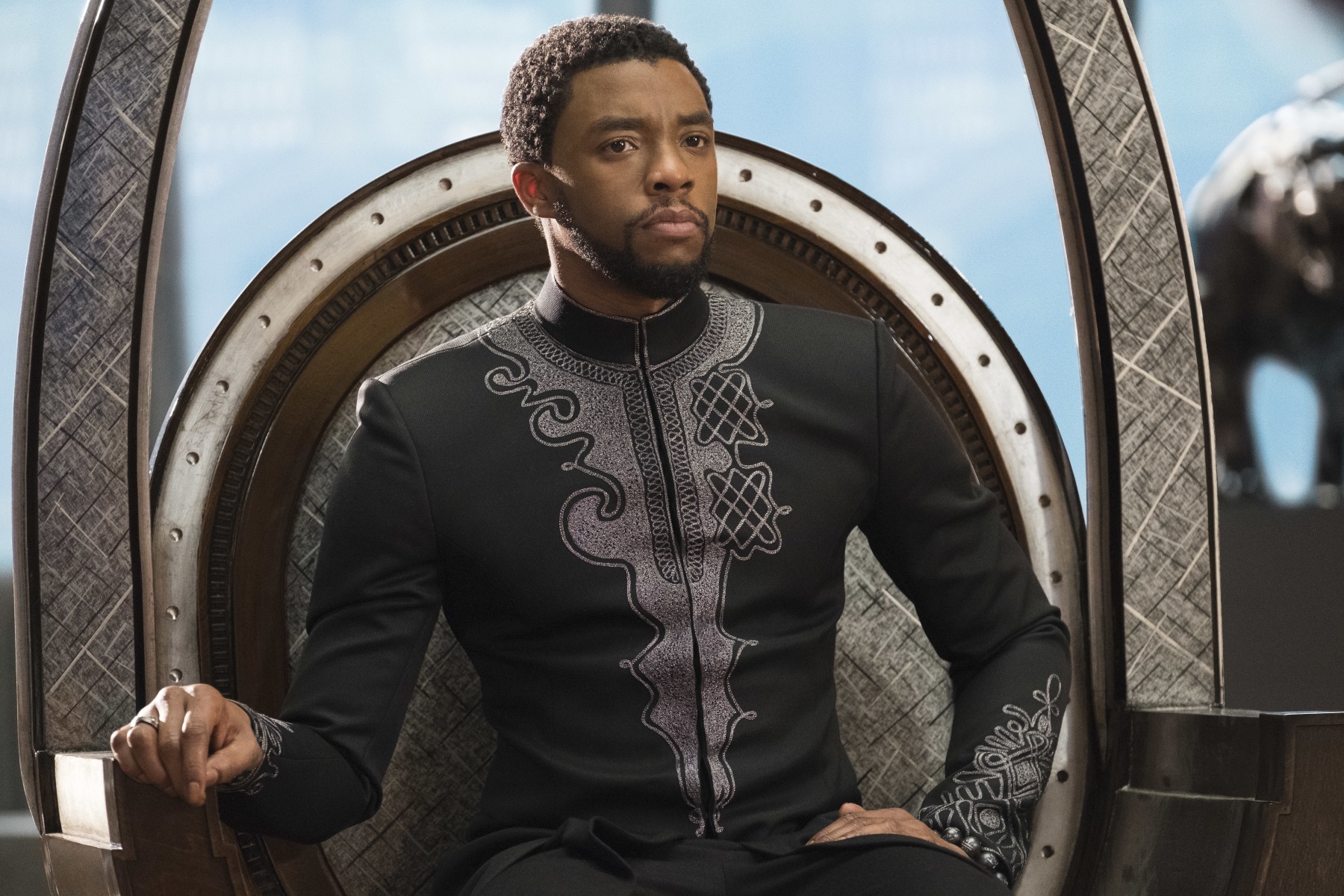By Kenneth Franklin
As I type this, I’m still reeling from the impact of Marvel’s “Black Panther.”
As a little kid I only saw two black heroes on television, Static from “Static Shock” and John Stewart, the “token” on “Justice League.”
While it was a great show that I still love, black representation clearly wasn’t a priority because I saw white faces everywhere I looked. Films like “Spider-Man,” “The Fantastic Four” and both “Avengers” films had all white leads. “X-men” had Storm, but she was underused and might as well been a machine that spews exposition.
I say this all because in the past seven years, we’ve seen a steady increase in representation for black people in comic media.
In 2011, I witnessed the creation of the black Spider-Man, Miles Morales, and then Ironheart Riri Williams in 2016. I watched in awe as Luke Cage got his own Netflix series in 2016 and brought the ruckus in the halls of Crispus Attucks and served as the moral compass in the “Defenders.”
I silently rooted for War Machine (“Iron Man 2”) and Falcon (“Captain America: The Winter Soldier”) even though they were relegated to the role of sidekicks.
But now in 2018, we have entered the Golden Age of comic media.
“Black Lightning” on the CW has given us an entire family of black superheroes. Season 2 of “Luke Cage” is coming this fall, and my personal favorite, “Spider-Man: Into The Spider-verse” starring Miles Morales, is coming to theaters this holiday season.
And now with “Black Panther,” I, and millions of other black children, are finally getting what we have been waiting for, for what feels like eternity, and it’s about time.
“Black Panther” picks up after the events of “Captain America: Civil War” where King T’Chaka was killed.
With his father dead, T’Challa is crowned king of Wakanda, but he soon learns that it’s hard for a good man to be king.
This is the most stylized MCU movie to date, with direction that makes other Marvel movies look like high-budget student films.
Ryan Coogler’s direction elevates this film to a level beyond anything I’d expect from a superhero movie. The camera work on this film is godly, and I couldn’t help but feel like I was watching a David Fincher movie in certain scenes.
While I’m on the topic of production, most of the visual effects were great, but some of the effects centered around T’Challa during fight scenes weren’t that great. They weren’t bad, they just looked wacky. At times, the CGI during the fight between T’Challa and his nemesis Erik Killmonger looked more like an episode of the children’s show, “Zixx”
The cast was phenomenal, each of the main characters had an arc and fleshed-out character development, combined with world building that really gave you an understanding of Wakandan culture and values.
We’ve known since “Captain America: Civil War” that Chadwick Boseman is an absolute boss as T’Challa. But as the leading man in the film, we get to see a more vulnerable side of this character, instead of the “you killed my father, prepare to die” storyline that the Russo brothers delivered in “Civil War.”
This makes T’Challa feel more like a real person, and less like the imposing figure he was the last time we saw him.
Aside from character growth, T’Challa gets some new digs, too. As seen in the trailers, his new panther suit has a sleek design and much-needed chin room in the mouth that makes the suit look more like an actual panther. The vibranium-weaved suit also has the ability to form around T’Challa at will, and it absorbs kinetic energy that it can discharge at anything in the way of the Black Panther.
But T’Challa isn’t the only character here.
Lupita Nyong’o plays alongside our lead as Nakia, a Wakandan spy who’s just as badass, minus the vibranium suit. I loved Nakia because I love Nyong’o, but also because of her ability to keep T’Challa on his toes whether it be physically or philosophically, as this movie had some pretty relevant social commentary concerning border control and immigration.
Nakia’s viewpoints contrast with almost all other characters in the movie, and she doesn’t care. She fights for her beliefs, even if it directly opposes core Wakandan ideals.
Danai Gurira gives an excellent performance as Okoye, T’Challa’s right hand. Okoye is a member of the Dora Milaje, an elite special forces group of all women that makes Black Widow’s “red room” look like Cub Scouts. Okoye is the stone-faced one of the group, keeping a serious demeanor throughout most of the film. She’d proudly die for Wakanda if she wasn’t such an unkillable badass.
Michael B. Jordan swaps out his role as “The Human Torch” for Erik Killmonger, a mysterious warrior who wants to beat the brakes off T’Challa. Jordan plays Marvel’s most compelling and sympathetic villain to date, and yes, fanboys, that means he’s better than Michael Keaton’s “Vulture.”
I didn’t know what to expect from Jordan’s performance because I couldn’t picture him playing a villain like Killmonger, but I was pleasantly surprised with his range. The film puts an interesting spin on the character, basically making him a pseudo-hotep, and it was interesting to see a character who says the same dumb sh*t as my cousin try to take over Wakanda, but either way, he’s the best villain in the Marvel Cinematic Universe.
As for the only two white characters, Ulysses Klaw and Everett Ross, they both have very distinct personalities. The vibranium-stealing mercenary Klaw has gone even more batsh*t since his last appearance in “Age Of Ultron,” which is fair considering he had his arm cut off by a sentient robot. But in true Marvel fashion, his new prosthetic arm is actually a sound cannon on steroids, so good for him.
CIA agent Everett Ross is the opposite, he’s more restrained in his behavior, but it doesn’t change that he still speaks lowly of Wakanda and condescends to T’Challa in their first encounter, something cocky white men have done to people of color for years.
There’s not much more I can say without getting into spoilers, but I can say that “Black Panther” is very much a “black” movie.
No, white people on Instagram, it’s not “just a superhero movie” it’s a black superhero film, directed and written by black people, for everyone, but with black people in mind.
That being said, “Black Panther” is my new favorite Marvel movie. I’m pretty sure “Avengers: Infinity War” is gonna change that, but that review will come in May.
“Black Panther” is a milestone in black cinema, superhero films and Hollywood in general. Please go out and see it. Everyone, regardless of race, will enjoy this movie and all it has to offer.
But don’t stop there, watch “Black Lightning,” binge “Luke Cage,” re-watch “Static Shock,” destroy a copy of that godawful movie “Steel” and go see “Into the Spider-verse” this winter.
But most importantly, keep supporting films that give kids who look like me something to look up to. Happy Black History Month.
Kenneth, 17, is a senior at Druid Hills High School and is VOX ATL’s video editor.
This story was published at VOXAtl.com, Atlanta’s home for uncensored teen publishing and self-expression. For more about the nonprofit VOX, visit www.voxatl.org.







